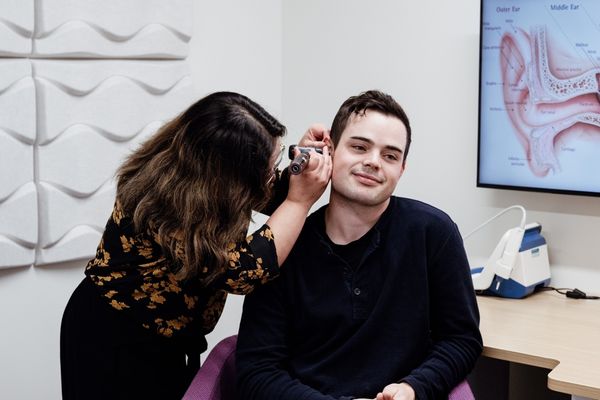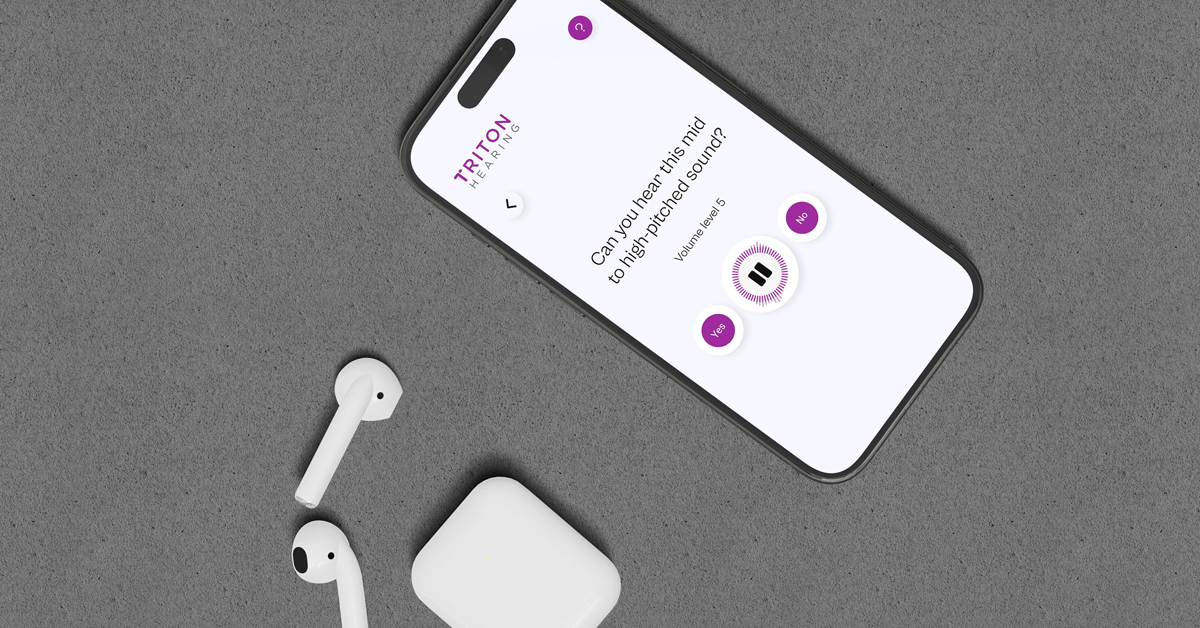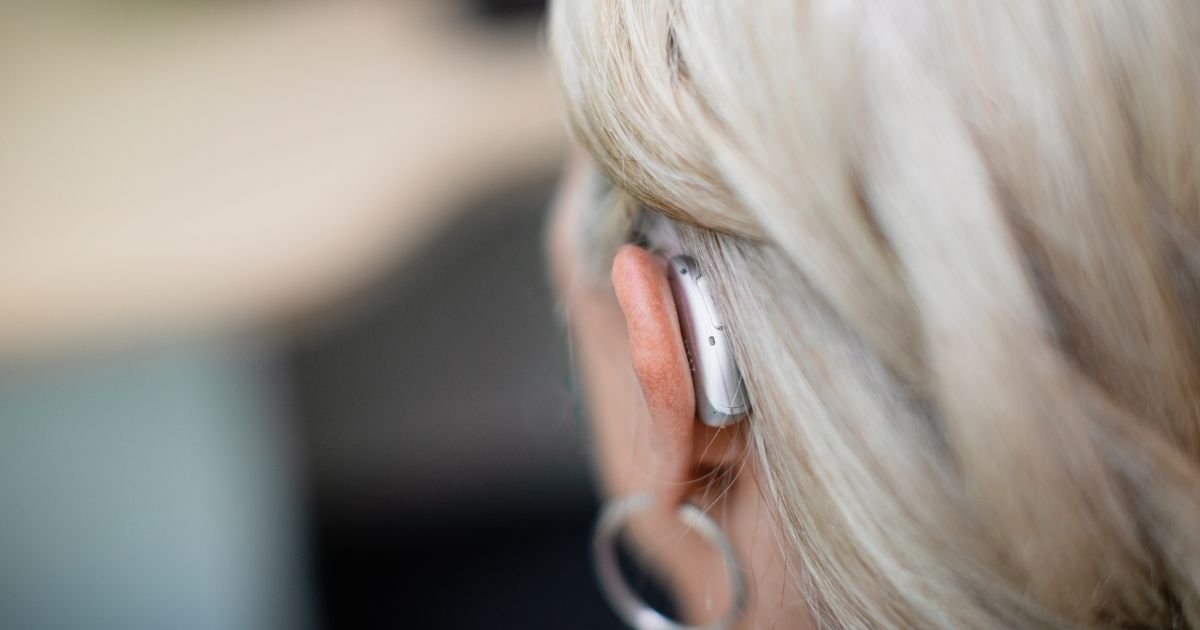What Should I Expect During A Hearing Check?
If you've never had your hearing checked and you're curious to learn more, here’s what to expect from a clinic visit.
A hearing check is a simple, free way to find out how well you’re hearing — and whether you may benefit from further assessment. At Triton Hearing, we offer free hearing tests for adults aged 18 and over at clinics across New Zealand. Many people put off getting their hearing checked, but early action can make a big difference. Whether you're noticing subtle changes or simply want peace of mind, a free hearing test is the best first step. There’s no cost, no referral needed, and no obligation — just expert advice and friendly support.
During your appointment, one of our trained clinicians will guide you through a relaxed, no-pressure process. If signs of hearing loss are found, we’ll explain what’s going on in clear, everyday language and talk through your options — including whether a full diagnostic hearing test is recommended.
Five simple steps
We have two free* hearing checks - a basic 15-minute hearing health check and a more in-depth 75-minute hearing assessment. The hearing assessment will follow along these five simple steps:
1. Lifestyle and hearing needs discussion
The audiologist will ask about your lifestyle and medical history to understand your specific hearing needs. This helps the audiologist later to recommend the best solution for your needs and preferences.
2. Otoscopy
In this painless examination, the audiologist looks into your ears at the ear canal and eardrum and ensures that they are intact. This also establishes whether there is a blockage and if excess ear wax needs to be removed.
3. Comprehensive hearing assessments
The audiologist carries out a two-part assessment (called audiometry). First, the audiologist plays sounds at a certain frequency and volume through a set of headphones; you would press a button whenever you hear a sound. This procedure is repeated for various frequencies. This is then followed by the speech comprehension assessment where spoken words are played at a defined volume over the headphones. You repeat each word as you understand it.

4. Analysis
The results of the hearing assessment are shown as a graph on the screen. The audiologist uses these results to see if you have a hearing loss or not. If you do have hearing loss, the readings from the audiogram provide information on your symptoms and sometimes about the possible cause of your hearing loss.
5. Recommendation
If you have an aidable hearing loss, the next step is the hearing aid recommendation. The audiologist will recommend suitable devices based on your lifestyle and medical history discussion, the otoscopy, the assessment and the wishes you expressed in your appointment.
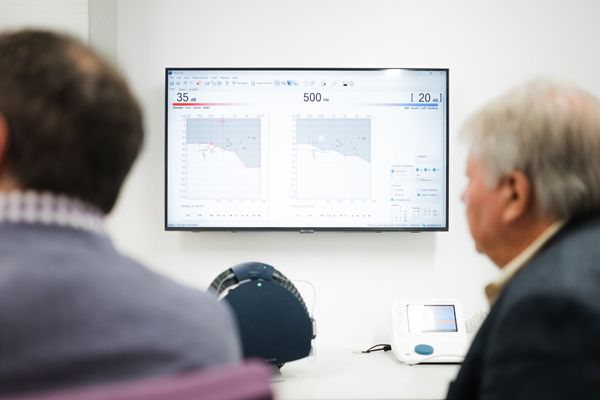
Other topics
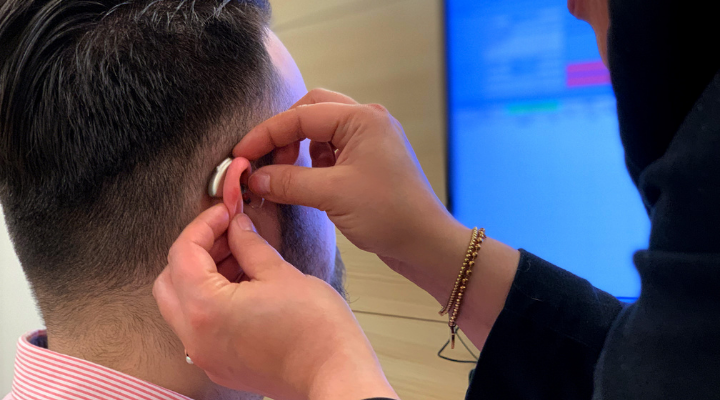
Types of hearing aids
Learn More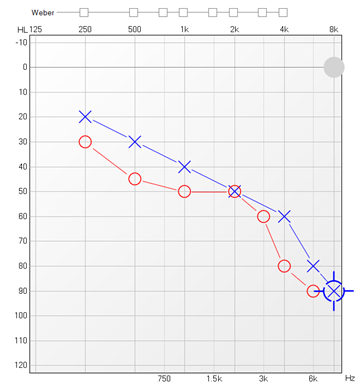
When to check your hearing
Learn More
